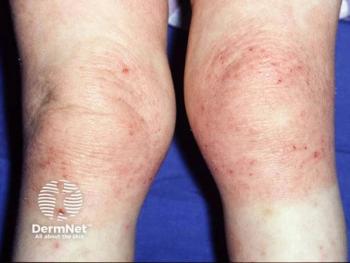
- Dermatology Times, January 2019 (Vol. 40, No. 1)
- Volume 40
- Issue 1
FDA says start with pediatric patients in atopic dermatitis trials
The FDA has reversed a long-standing guidance stating that sponsors of clinical trials for atopic dermatitis (AD) in pediatrics need not start the trial in adults first. Here's what you need to know.
The FDA has reversed a long-standing guidance stating that sponsors of clinical trials for
There are some caveats:
- Upon approval, applicants should disclose how to use the drug safely and effectively in pediatric patients.
- AD trials should be initiated early in development once efficacy and safety data are available.
- Safety questions, such as the risk for longlatency or low-frequency adverse reactions, do not have to be resolved before initiation of studies in pediatric patients with AD.
- It is not necessary to have an extensive safety database in adults before starting pediatric atopic dermatitis clinical trials due to the extent of disease-related morbidity in children, the high risk of disease-related progression in this population, and the relative risk-benefit calculus with off-label use of immunosuppressive therapies.
- All pediatric age groups should be studied, including children two years old and younger. However, it may be necessary to first have safety outcomes from trials conducted in older pediatric patients; resolve age-related technical issues; and, address any potential safety-related concerns.
The guidance, “Atopic Dermatitis: Timing of Pediatric Studies During Development of Systemic Drugs Guidance for Industry,” is online at
Articles in this issue
about 7 years ago
Medicare physician fee schedule changesabout 7 years ago
Access to dermatologic care varies by demographicabout 7 years ago
Digital tools impact daily dermatology practiceabout 7 years ago
AAD updates cutaneous melanoma guidelinesabout 7 years ago
Artificial Intelligence. Friend or foe of dermatology?about 7 years ago
Warning signs of life-threatening purpuraabout 7 years ago
Optimize clinical trial recruitment with digital platformsabout 7 years ago
Digital health and dermatologyabout 7 years ago
The future of dermatologyNewsletter
Like what you’re reading? Subscribe to Dermatology Times for weekly updates on therapies, innovations, and real-world practice tips.











